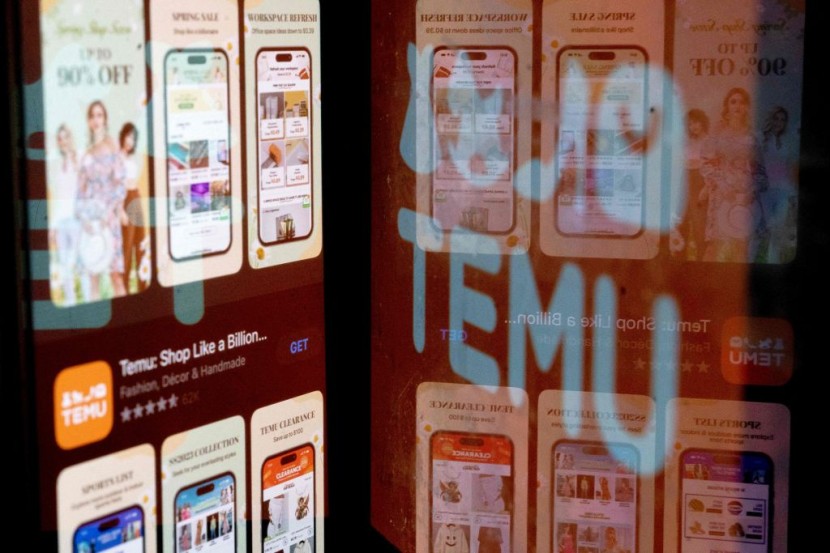
Temu is a clothes and home decor online store owned by PDD, which operates the Chinese e-commerce site Pinduoduo. It launched in the US in September 2022 and quickly became the most downloaded app on Apple's US app store and was planning to compete with retail giants like Amazon and Ebay.
However, the Israeli global supply chain verification firm Ultra Information Solutions has revealed the e-commerce site was selling items which could be traced to forced labor in China.
According to a Bloomberg article, products made by forced labor in the Chinese province of Xinjiang, home of the Uyghur ethnic minority, were being sold to US consumers through Temu, in a breach of a US ban.
Different Apps, Same Origin
Ultra said it used its digital vetting platform Publican and found at least 10 items made or sold by businesses located in Xinjiang and are also available in the US on Temu, where their company links and origins were obscured. They also noted the research was of their own accord and not commissioned by any third party.
Ultra co-founder Ram Ben Tzion said the discovery meant Temu was systematically violating US trade policies. "It was our initiative to illustrate how our technology can be a critical component in the enforcement of [the Uyghur Forced Labor Prevention Act] as well as other trade-related compliance challenges," he added.
While Ultra's Publican platform could not find conclusive evidence of Temu products being made by forced labor, it did provide a location of origin, which was Xinjiang. "However, their proximity means there is a probable risk, not just a theoretical risk," Ben Tzion clarified.
Publican's supply chain vetting was contracted to more than 35 government agencies, including tax, customs, and law enforcement in South America, Africa, and elsewhere with the goal of interdicting fraudulent and illegal shipments.
Uyghur Forced Labor
The US Department of State has condemned what they called the "horrific abuses" against the predominantly-Muslim Uyghur people of Xinjiang, which made federal officials decided to ban the importation of cotton from the region in 2021. They have also expanded the law and its enforcement to all Xinjiang products in 2022 under the UFLPA.
Statements from former detainees, as well as reports from researchers and advocacy groups, alleged the Chinese government had put over 1 million people in detention camps in the region, and laborers in fields and factories were forced or coerced. However, the Chinese government said the camps were for reeducation purposes.
Temu's Chinese Connection
Temu gained some popularity after it ran two advertisements during the most recent Super Bowl last February. The ad featured a shopper dancing in a suite of outfits while revealing their tagline "Shop like a billionaire". On YouTube, the ad has since been viewed 341 million times.
The app's direct competitor is another Chinese retail store called Shein, whose estimated US sales ran at $8 billion in 2022. Temu and Shein would soon join a handful of Chinese internet services becoming popular in the US, such as Allibaba's AliExpress and ByteDance's TikTok.
PDD not only takes on global competitors such as Amazon and eBay, it also attempts to outprice other Chinese retailers like Alibaba or JD.com. Its domestic app Pinduoduo recruits suppliers to offer various products, similar to Temu's process. But unlike Pinduoduo, Temu handles delivery, promotion, and after-sales services for merchants on its platform.
Temu and the Global Market
Temu opened an office in Boston to serve US and Canadian customers in addition to its Australian and New Zealand markets.
According to YipitData, Temu's US sales grew 6% on a weekly basis during the last week of May, with an average of $34 per order.
Another factor why Temu was able to penetrate the US market when it was not supposed to be because shipments from China sold directly to consumers could bypass the US ban on Xinjiang products because they were below the $800 threshold, which could trigger reporting requirements to the US Customs and Border Protection.
After separately doing research on Shein garments shipped to the US on two occasions last year, Bloomberg found out that the cotton the products were made of came from Xinjiang.
Temu's Threat to US Economy
In April the Congressional US-China Economic and Security Review Commission published a report labeled Shein and Temu as potential "risks and challenges to US regulations, laws, and principles of market access" resulting from direct-to-consumer (D2C) sales. As a result of the report, Mike Gallagher (R-WI) and Raja Krishnamoorthi (D-IL) sent letters to Temu, Shein, and two other companies to determine if they were importing products derived from forced labor in China.
Last week, the US Department of Homeland Security named two new Chinese companies in the UFLPA entity list, which meant they would be restricted from sending goods to the US. Since Customs and Border Protection enforced the UFLPA in June 2022, there were already 22 Chinese firms designated as companies selling or sending goods made with forced labor.
Responding to the updated list, Representative Chris Smith (R-NJ) and Senator Jeff Merkley (D-OR) said the list was merely one part of enforcement as they seek to slowly identify all forced labor goods coming out of Xinjiang and work toward the goal of stopping imports of forced labor goods. "American consumers should not be unwittingly subsidizing [China's] genocide," they said.
Related Article: US Senators Seek to Ban Chinese Drones from US Skies
© 2025 HNGN, All rights reserved. Do not reproduce without permission.








